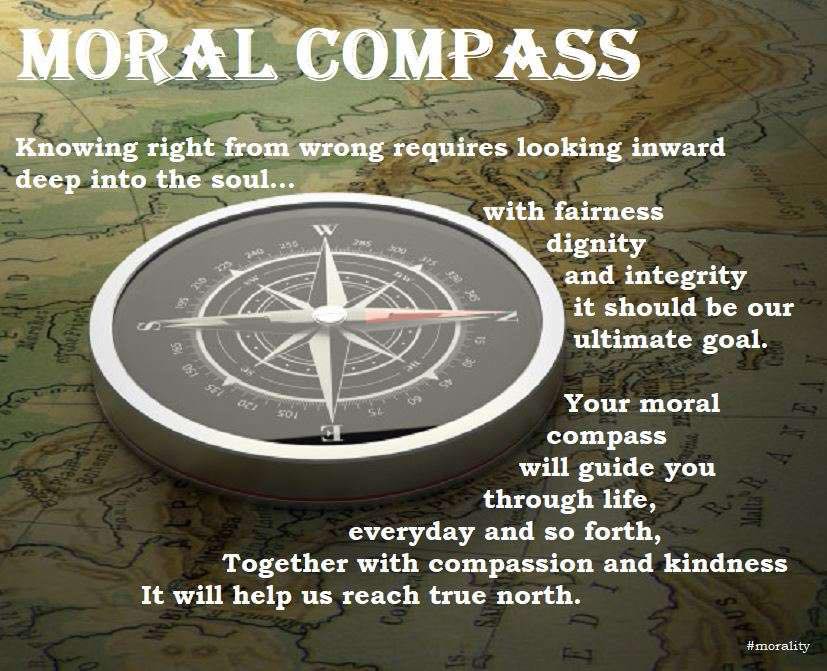
Page Description
The moral compass serves as an
internal guide that helps individuals
navigate moral decision-making
by relying on personal values
and ethical principles.
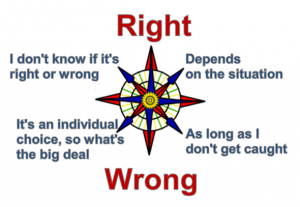
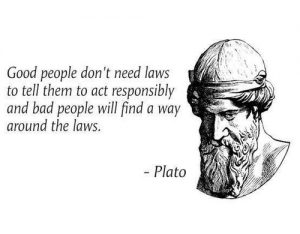
Moral compass
A natural feeling that makes people know what is right and wrong and how they should behave.
Some people believe that the increase in crime shows that society is losing its moral compass.
Cambridge Dictionary
In the world of scientific research, honesty is more than just a virtue; it’s a responsibility. Recently, several prominent researchers, including Nobel laureates, have come forward to openly acknowledge errors in their work. Their confessions underscore the importance of transparency and integrity in research, reminding us that the pursuit of knowledge requires humility and the courage to admit when things go wrong.
“Je kunt maar beter open zijn over de fouten in je onderzoek,” is not just advice—it’s a call to action. As we explore these stories, we are reminded that even the most distinguished minds face challenges and make mistakes. The real measure of success lies in how we respond to those mistakes and the lessons we take from them.
In de wereld van wetenschappelijk onderzoek is eerlijkheid meer dan een deugd; het is een verantwoordelijkheid. Recentelijk zijn verschillende prominente onderzoekers, waaronder Nobelprijswinnaars, naar voren gekomen om fouten in hun werk openlijk toe te geven. Hun bekentenissen benadrukken het belang van transparantie en integriteit in onderzoek, en herinneren ons eraan dat de zoektocht naar kennis gepaard gaat met nederigheid en de moed om toe te geven wanneer iets misgaat.
“Je kunt maar beter open zijn over de fouten in je onderzoek,” is niet slechts advies—het is een oproep tot actie. Terwijl we deze verhalen verkennen, worden we herinnerd aan het feit dat zelfs de meest vooraanstaande geesten uitdagingen tegenkomen en fouten maken. Het echte succes wordt gemeten aan de manier waarop we omgaan met die fouten en de lessen die we eruit trekken.
This webpage, discussing the moral compass, is linked to the introduction on the homepage of the website.
Upon realizing that justice can differ from public perception, it becomes crucial to reconsider our understanding.
Take, for instance, the case of Sanda Dia, a 20-year-old Belgian civil engineering student (referenced in homepage point 7). Despite being aware of the facts, incorrect decisions were made, and the event was not halted. Tragically, Sanda lost his life during an extreme student initiation ritual, a fact evident in footage that shows he was already incapacitated on the morning of the initiation, as was another fellow student.
When the incident is labeled as an ‘accident,’ it becomes apparent that this term does not accurately reflect the situation, and it highlights how the concept of justice can distort reality.
De onderhavige webpagina over het moreel kompas heeft betrekking op de inleiding op de homepage van de website.
Wanneer je tot het besef komt dat de werkelijkheid verschilt van wat de perceptie suggereert, is het relevant om twee keer na te denken.
Neem bijvoorbeeld het geval van de 20-jarige Belgische student burgerlijk ingenieur, Sanda Dia (vermeld op de homepage, punt 7). Ondanks het kennen van de feiten werden er verkeerde beslissingen genomen of werd de studentendoop niet gestopt. Sanda verloor tragisch zijn leven tijdens een extreem ontgroeningsritueel, waarbij beeldmateriaal laat zien dat hij ‘s ochtends al niet meer kon gaan (hij moest ondersteund worden, met zijn arm over de schouder van een van de Reuzegommers). Een van de twee andere schachten kon evenmin met de grootste moeite nog gaan.
Wanneer gesproken wordt van een ‘ongeluk,’ besef je dat dit niet het juiste woord is. De werkelijkheid wordt geweld aangedaan. Men strooit de mensen zand in de ogen door onduidelijk taalgebruik. Men wordt op het verkeerde been gezet.
- Justice stands as a cornerstone of society, wielding unchecked power as a result.
- When a lack of caution leads to practices — termed ‘A perversion of justice‘ by the BBC in the Liam Allan videos — using words like ‘abject’, the resulting consequences become far-reaching and incalculable.
- While we pride ourselves on being a nation with a rule of law and a sophisticated, developed society, individual cases reveal how lives and environments can be shattered by the very hands of justice.
- The moral compass, within the context of this website, implies that individuals of influence and societal status see reality for what it truly is: unobscured and aligned with values encompassing the rule of law, justice, ethics, and conscience.
- For instance:
- In a PDF attached below — an article from De Standaard dated Friday, January 24, 2020, on page 10.
- The article highlights that multiple researchers, including a Nobel laureate, openly admitted on Twitter that their papers contain erroneous data.
‘Je kunt maar beter open zijn over de fouten in je onderzoek’
The article, in its clarity, thoroughly explains the circumstances behind these errors. Every aspect is meticulously addressed.
The Nobel laureate in chemistry, quoted in the photo caption within the article, confesses: ‘I did not fulfill my duties properly.’
On the website, Royal Society of Chemistry commendations abound:
… ‘it has been universally and rightfully praised as a paragon of integrity and responsibility.’
The succinct explanation under the section ‘Crisis Communication?’ in the article reads:
‘The study in question, published in the prestigious journal Science in May 2019, was not replicable — and consequently, deemed worthless.’
- It’s beyond comprehension that a sworn individual within administrative and judicial spheres of society could behave contrary to their obligations.
- The implications and influence on an individual by someone wielding such power are difficult to articulate.
- The cases of Liam Allan and the videos recounting Ricky Jakson’s experiences serve as exemplars – instances that should never occur unless systemic flaws plague both society and its justice system.
- The other side of the coin regarding justice: systemic errors lead to a legal quagmire, compounding the failures further.
- One cannot be scapegoated for something that doesn’t exist, nor branded as the villain without possessing such characteristics.
- Justitie is een pijler in de samenleving en beschikt bijgevolg over ongebreidelde macht.
- Wanneer gebrek aan voorzorg, een werkwijze die de BBC in voornoemde video’s nopens Liam Allan ‘A perversion of justice’ noemt – het woord abject wordt gebruikt – dan kom je tot gevolgen waar de impact niet van te overzien is.
- We hebben een rechtsstaat, een beschaafd, hoog ontwikkeld land, doch in een individuele casus kom je tot de vaststelling dat het leven van een mens en zijn omgeving door justitie verbrijzeld wordt.
- Het moreel kompas betekent in de context van deze website, dat vaandeldragers en zij met maatschappelijke status, de werkelijkheid zien zoals ze werkelijk is, onomfloerst, in het reine met waarden die de rechtstaat, justitie, de ethiek en het geweten in zijn vaandel draagt.
Voorbeeld
- Onderstaande pfd, een artikel uit De Standaard van vrijdag 24 januari 2020 pagina 10:
- “Meerdere vorsers, onder wie een nobelprijswinnaar, hebben onder meer op Twitter bekendgemaakt dat hun papers foutieve data bevatten“.
‘Je kunt maar beter open zijn over de fouten in je onderzoek’
Het artikel is helder en duidelijk. Er wordt uitgelegd: het hoe en waarom van wat er gebeurd is. Alle elementen worden toegelicht.
De nobelprijswinnaar chemie zegt in het bijschrift van de foto in het artikel: ‘ik heb mijn werk niet goed gedaan’.
Op de website van de Royal Society of Chemistry staan er lovende woorden:
… ‘it has been universally, and rightly, praised as a model of integrity and responsibility.’
De toelichting onder het kopje : ‘Crisiscommunicatie?’ in het artikel is to-the-point:
‘De studie in kwestie, in mei 2019 gepubliceerd in het topvaktijdschrift Science, was niet repliceerbaar – en dus waardeloos.’
- Niemand kan begrijpen dat een beëdigd persoon in administratie en justitie en aanverwante entiteiten in de samenleving, domweg het omgekeerde doet van wat hij hoort te doen.
- De gevolgen en de impact op een mens door iemand die je in zijn macht heeft, is iets waar er geen woorden voor zijn.
- De reeds toegelichte casus Liam Allan en voornoemde hyperlink naar de video nopens wat Ricky Jakson overkomen is, zijn exemplarisch.
Twee voorbeelden van wat niet kan gebeuren, tenzij het vreselijk mank loopt in de samenleving en bij justitie. - De keerzijde van justitie: je komt als gevolg van systeemfouten in een juridische bubbel én daar loopt het nogmaals helemaal fout.
- Je kunt niet de zondebok zijn voor iets die er niet is, of het label krijgen van de slechterik, wanneer die karakteristieken niet te terug te vinden zijn.
In cases of scientific fraud, as in justice,
‘I did not fulfill my duties properly’ is also applicable.
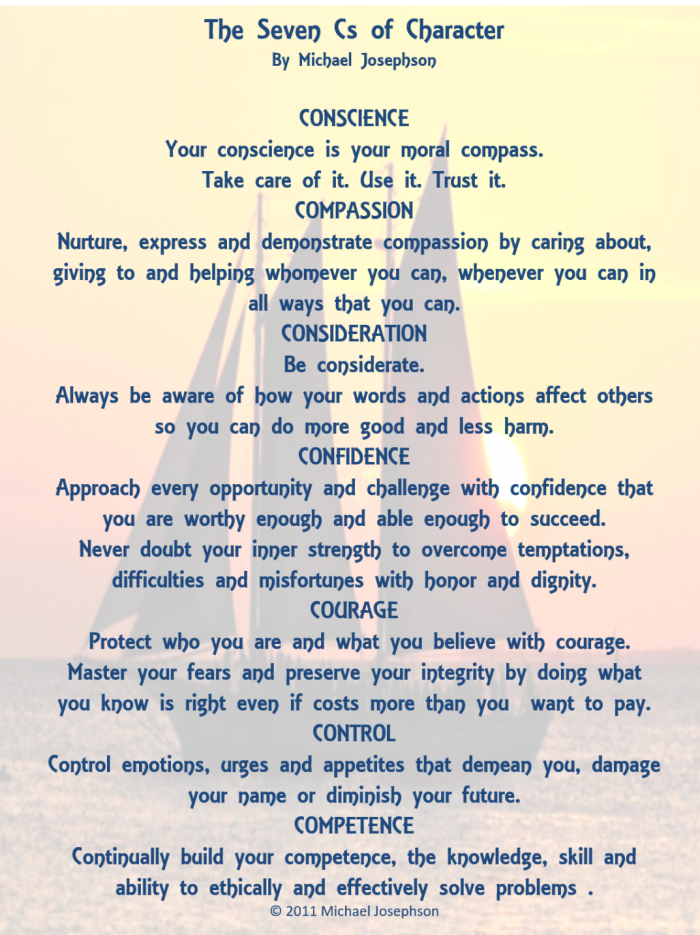
Your conscience is your moral compass. Take care of it. Use it. Trust it.
In general, a “moral compass” refers to an individual’s internal guidance system that helps them differentiate between right and wrong, make ethical decisions, and determine their actions and behaviors. Here are some key points that may be relevant to the concept of a moral compass:
Personal values: A moral compass is shaped by an individual’s personal values, which are their fundamental beliefs about what is important, right, and just. These values may be influenced by various factors, such as cultural, religious, familial, or individual beliefs.
Ethical principles: A moral compass may be guided by ethical principles, such as honesty, integrity, fairness, respect, and compassion. These principles serve as guidelines for making moral judgments and decisions.
Conscience: A moral compass may involve an individual’s conscience, which is their inner voice that alerts them to the moral implications of their actions and behaviors. Conscience can evoke feelings of guilt, shame, or pride based on how well an action aligns with an individual’s moral values.
Contextual considerations: A moral compass takes into account the specific context of a situation, including the consequences of actions, the rights and well-being of others, and the broader societal impact of decisions. It recognizes that moral dilemmas can be complex and that the right course of action may depend on the situation.
Self-reflection and introspection: Developing a moral compass requires self-reflection and introspection, as individuals need to critically evaluate their beliefs, values, and actions. This involves being open to feedback, considering diverse perspectives, and continuously learning and growing in moral reasoning.
Action-oriented: A moral compass is not just about abstract moral reasoning but also about taking action based on one’s ethical principles. It involves behaving in a manner that aligns with one’s moral values and principles, even in challenging situations.
Fallibility: A moral compass acknowledges that individuals are fallible and may make mistakes in moral judgment and actions. It requires humility and the willingness to learn from errors and make amends when necessary.
It’s important to note that different individuals may have different moral compasses based on their unique experiences, beliefs, and perspectives. The concept of a moral compass is subjective and can vary across cultures, religions, and philosophical systems.

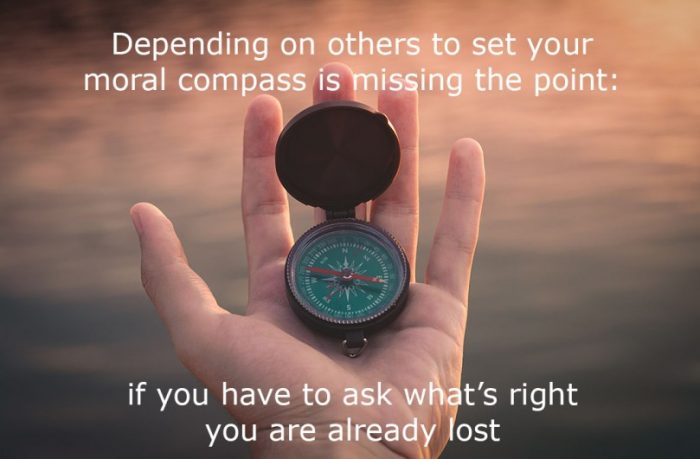
“The moral compass” is a metaphorical expression that refers to an individual’s internalized set of values, principles, and beliefs that guide their behavior and decision-making in ethical and moral matters. Here are key points associated with the concept of a moral compass:
Personal Values: A moral compass is rooted in an individual’s personal values, which are deeply held beliefs about what is right or wrong, good or bad.
Ethical Principles: It involves adherence to ethical principles such as honesty, integrity, fairness, and empathy. These principles serve as a guide for making moral decisions.
Inner Guidance: The moral compass is often seen as an internalized guide that helps individuals navigate complex ethical dilemmas. It provides a sense of direction when facing moral challenges.
Consistency: A strong moral compass promotes consistency in behavior, ensuring that actions align with one’s ethical beliefs and values across different situations.
Social and Cultural Influences: While personal, a moral compass can be influenced by external factors such as family upbringing, cultural background, religious beliefs, and societal norms.
Decision-Making: It plays a crucial role in decision-making processes, helping individuals determine what is morally acceptable and guiding them towards actions that align with their values.
Reflection and Growth: Individuals with a well-developed moral compass often engage in self-reflection, seeking to improve and refine their ethical principles over time.
Accountability: A moral compass implies a sense of accountability for one’s actions. Individuals are responsible for the ethical consequences of their decisions and behaviors.
Adaptability: A robust moral compass is adaptable to changing circumstances. It allows individuals to apply their values to new situations and challenges, promoting flexibility in ethical decision-making.
Individual Variation: Each person’s moral compass is unique, reflecting their individual experiences, beliefs, and perspectives. While there may be common ethical principles, the specific values and priorities can vary among individuals.
In summary, the moral compass serves as an internal guide that helps individuals navigate the complexities of moral decision-making by relying on personal values, ethical principles, and a commitment to doing what is perceived as right and just.
Anonymous – The Story of Aaron Swartz Full Documentary
7 sep. 2014
This film follows the story of programming prodigy and information activist Aaron Swartz. From Swartz’s help in the development of the basic internet protocol RSS to his co-founding of Reddit, his fingerprints are all over the internet. But it was Swartz’s groundbreaking work in social justice and political organizing combined with his aggressive approach to information access that ensnared him in a two-year legal nightmare. It was a battle that ended with the taking of his own life at the age of 26. Aaron’s story touched a nerve with people far beyond the online communities in which he was a celebrity. This film is a personal story about what we lose when we are tone deaf about technology and its relationship to our civil liberties.